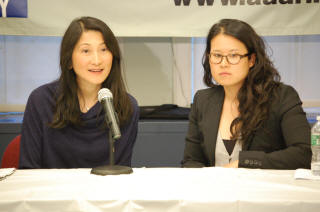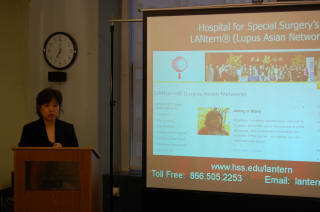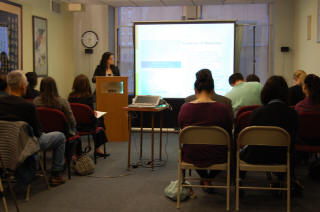
Lupus, a chronic, autoimmune illness, occurs more frequently and with more severity in the Asian community than among whites. It can have a widespread effect on one’s body as it may affect different major organs, such as the kidneys, heart, skin, lungs, or central nervous system. A challenge in lupus assessment is that the illness may vary from one patient to another, and within the same patient over time. Symptoms can be invisible and unpredictable. Severe fatigue, pain, and sleep disturbances can be life-changing. If left undiagnosed, under-diagnosed, or untreated, lupus can become a life threatening event.

Like many other chronic illnesses with a variable course, living with lupus can have a profound impact on family relationships, self-esteem, and changes in self-concept – all challenging to communicate without feeling misunderstood or like a burden. How can one maintain a feeling of emotional and body wellness in this context? We will look at these variables from a medical perspective, a personal account of a life living with lupus, and a cultural perspective on the relationship between lupus and our Asian community.
The panel presentation will be moderated by My-Lan Tran, LCSW, LANtern (Lupus Asian Network) at Hospital for Special Surgery.


